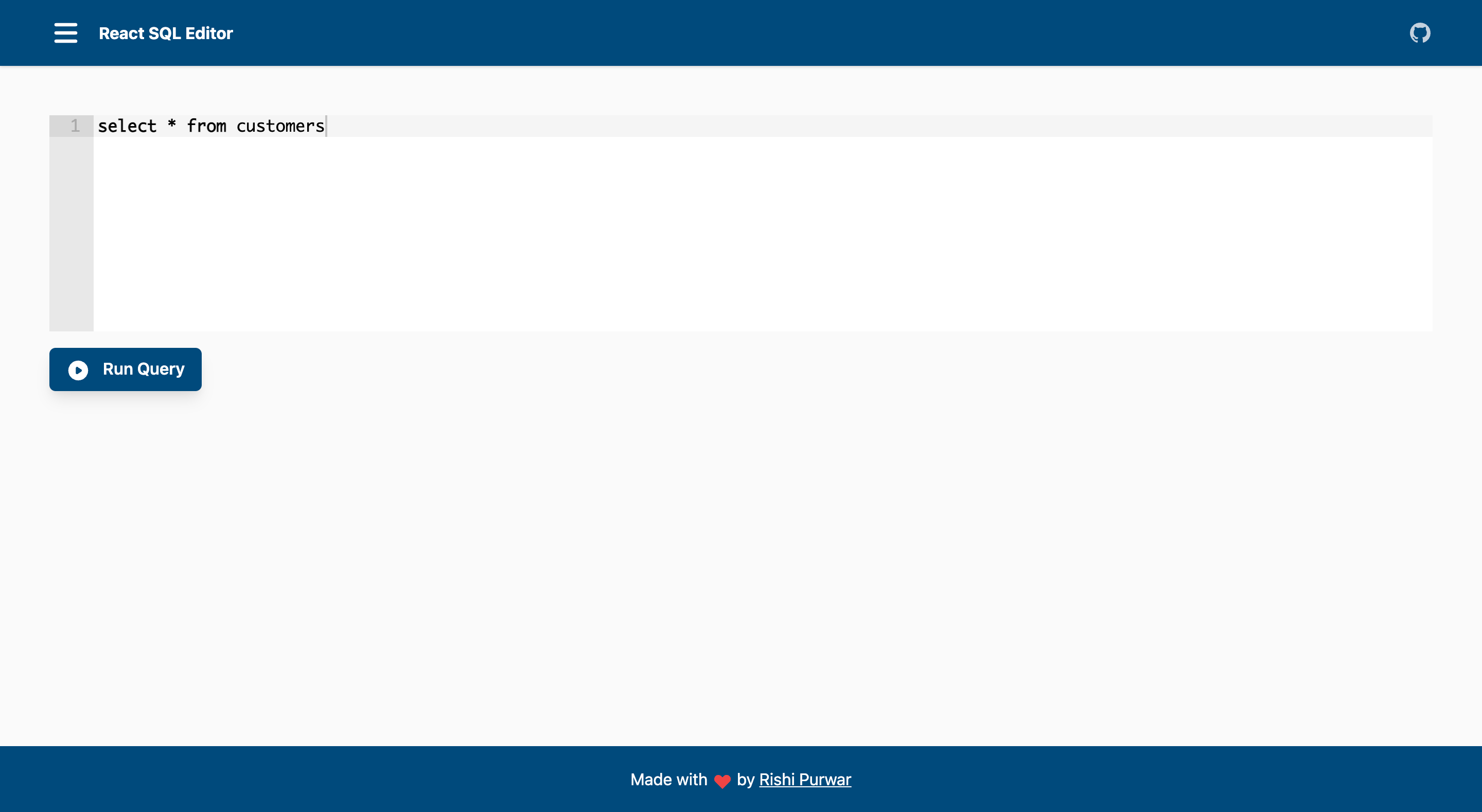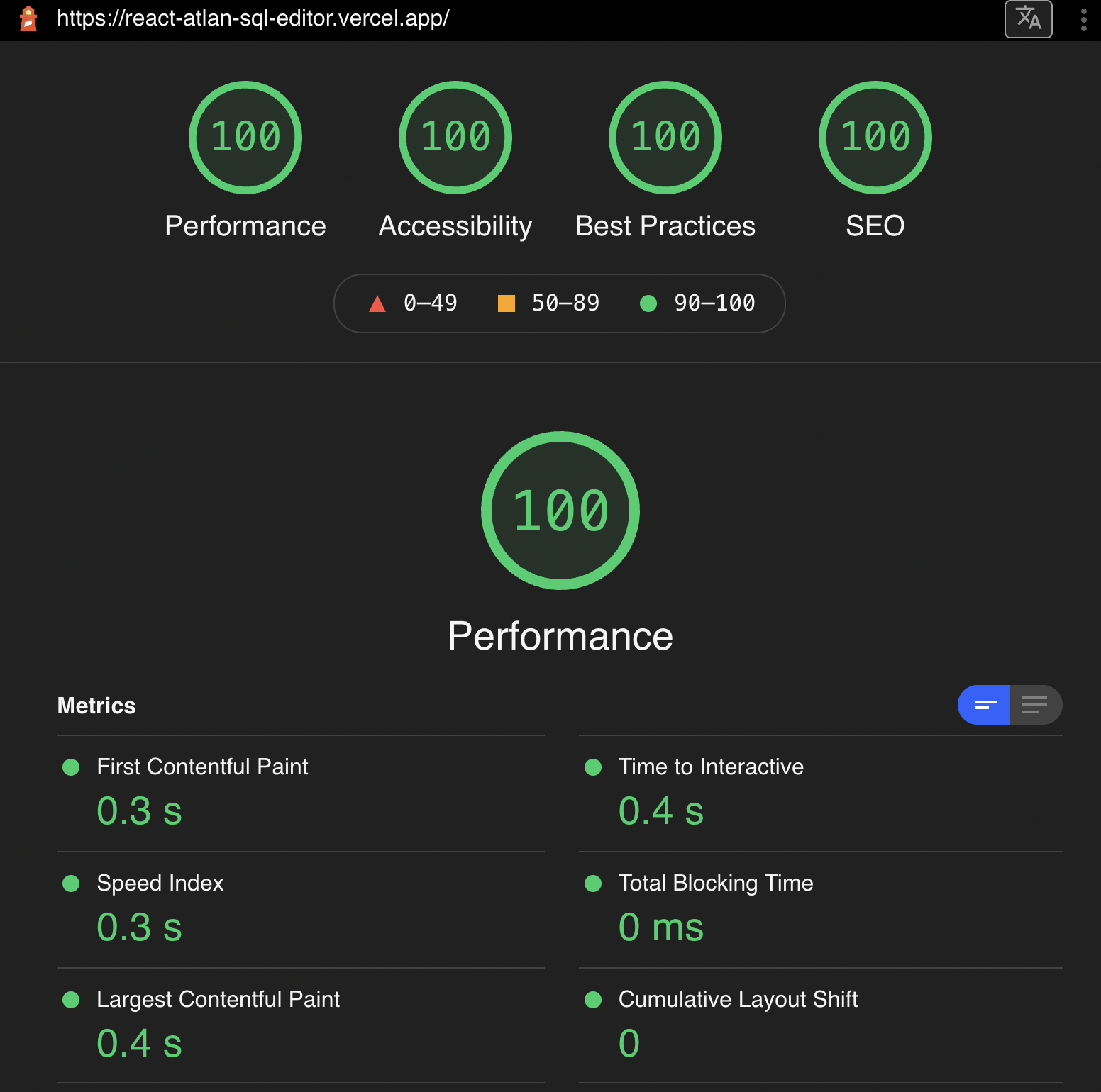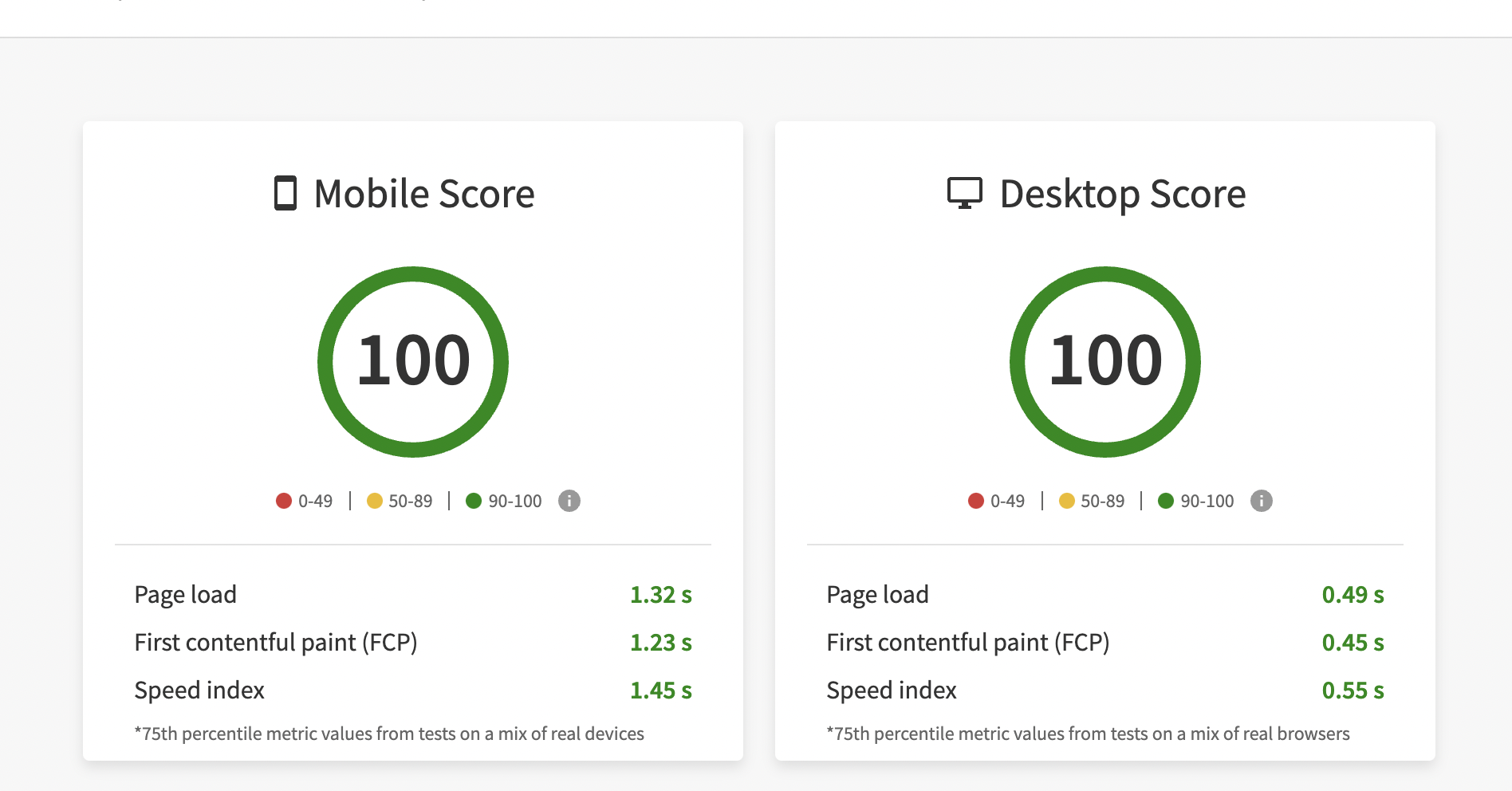This is a REACT SQL Editor built using ReactJs and TailwindCSS.

Try out the website : REACT SQL Editor
✅ Users can get data of any of the predefined SQL queries either by using SQL Editor or Sidebar Menu.
✅ Users can sort data directly by clicking the Table Headers title.
✅ Users can search for a particular data among many records using the search bar.
✅ Users can navigate to different pages using pagination.
✅ Users can download the data in CSV and JSON Format in just one click.
✅ Users can see query runtime in milliseconds(ms).
select * from customersselect * from categoriesselect * from employee_territoriesselect * from order_detailsselect * from ordersselect * from productsselect * from regionsselect * from shippersselect * from suppliersselect * from territories
Page Load time of this website in desktop is in the range of 0.4 s to 0.6s.
I calculated the performance and load time of this website using these two tools Lighthouse Chrome DevTools and BrowserStack SpeedLab.
Lighthouse Chrome DevTools Report (got a perfect 💯)
- First Contentful Paint marks the time at which the first text or image is painted
- Time to interactive is the amount of time it takes for the page to become fully interactive.
- Speed Index shows how quickly the contents of a page are visibly populated.
- Total Blocking Time is the sum of all time periods between FCP and Time to Interactive, when task length exceeded 50ms, expressed in milliseconds.
- Largest Contentful Paint marks the time at which the largest text or image is painted.
- Cumulative Layout Shift measures the movement of visible elements within the viewport.
- Used code-splitting with
React.Lazy()andSuspenseto lazy load the components and split javaScript into multiple chunks using Dynamic runtime Imports for faster page load. - Used
React.Memo()to optimize the render performance of functional components. - Used PurgeCSS to tree-shake unused styles and optimize my final build size.
- Used Lighthouse DevTools Extension to find the performance issues and fix them using their actionable suggestion.
- Used vercel to deploy this website to leverage its Vercel Edge Network compression that results in the better performance.
In the project directory, you can run:
Runs the app in the development mode.
Open http://localhost:3000 to view it in the browser.
The page will reload if you make edits.
You will also see any lint errors in the console.
Builds the app for production to the build folder.
It correctly bundles React in production mode and optimizes the build for the best performance.
The build is minified and the filenames include the hashes.
Your app is ready to be deployed!
See the section about deployment for more information.




